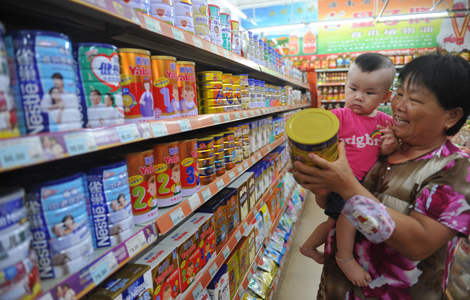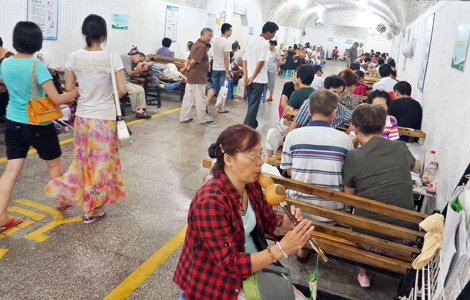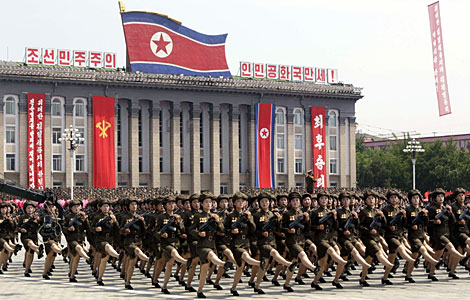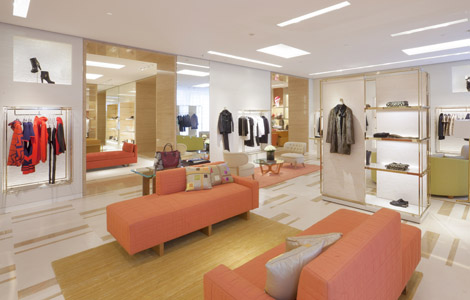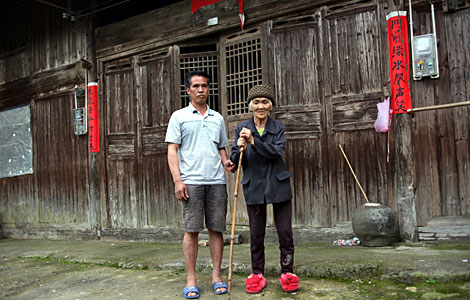Industry cuts its cloth to measure up to buyers' needs
Updated: 2013-07-29 02:22
By Hu Haiyan and Zhou Furong (China Daily)
|
||||||||
Change in pattern and mold essential to suit survival and success, says textile boss
Challenges always present opportunities and the impetus for companies to improve or transform, believes Zhang Ziyan, president of Jiangsu Guotai International Group, a major Chinese trading enterprise."Currently the Chinese textile industry is facing many challenges, which also means some opportunities for us," says Zhang. "It is really crucial for textile companies to make changes to combat these challenges."
Zhang, who has been in the textile trade for about 30 years and joined the group in 1980, started his business career as a salesman.
Speaking at the group's headquarters in Zhangjiagang, Jiangsu province, opposite the five-star Guomao Hotel it owns, Zhang says the outlook for the Chinese textile industry is bleak and it is make-or-break time for many businesses.
However, he believes the problems facing the textile industry are temporary and are mainly the result of the restructuring and consolidation of the industry. He claims 40 percent of textile companies in China are running at a loss, 30 percent are just about making ends meet while, of the rest, the earnings of the top third far outweigh those of the rest combined.
Zhang blames several factors for this situation, including increasing labor costs, rising yuan exchange rates and overcapacity.
"Many textile companies, especially the small and medium-sized enterprises, will fail amid the fierce competition," he warns. "The textile industry will further consolidate and as many as two-thirds of textile companies will collapse."
He also says that it is rare to see private investment in the textile industry these days, so many owners want to sell their factories. Many of Jiangsu Guotai International Group's customers are reducing their inventory and cutting down on production.
In spite of these drawbacks, however, his company still made progress last year, Zhang claims.
With 106 subsidiaries making it one of the biggest State-owned enterprises in Suzhou city, a center for the textile industry, Jiangsu Guotai International Group marked up annual sales of 30.28 billion yuan ($4.93 billion) last year, an increase of 16 percent compared with 2011.
In 2012, the group made total imports and exports of $2.73 billion, a year-on-year increase of 15.8 percent. Export sales hit $2.19 billion, increasing by 6.6 percent compared with 2011, while import sales hit $540 million, an increase of 78.1 percent.
Last year, the group gained revenue of $1.65 billion from exporting clothes.
In the first quarter of this year, the group saw an increase in exports of 40 percent, with that of clothing, increasing by 50 percent.
Zhang says the group's good performance is down to changes it began making in 2011.
"Our group became mainly focused on self-managed exports and not using any trade agents for our products," he says. "This is effective and efficient.
"We have also focused a lot on going global and improving our cooperation with international trade companies."
Jiangsu Guotai International Group exports its textile products to many countries and regions, including the United States, Europe and Japan. It has increased them to emerging markets such as South America and Central Asia, Zhang adds.
What's most important, he says, is that the group aims to build itself into a service provider.
"Unlike other textile companies which just make products, our aim is to provide trading and logistics services for the whole textile industry," says Zhang, in the belief that this will overcome the challenges of a changing market.
"It is normal for some products to decline and disappear under fierce competition but, regardless of whether products become popular or unpopular, there always need to be trading service providers."
He also believes his company's transformation is beneficial for the textile industry as a whole.
"It's not just change. It means improvement in efficiency and innovation," Zhang says. "The Chinese textile industry is not well structured and suffers from overcapacity."
So far, China has lacked international trade companies which focus on consumer products. This provides an opportunity for Jiangsu Guotai International Group.
"We can provide trade and logistics services for the industry and help transform it as a whole," he says.
To do so, Jiangsu Guotai International Group will keep an eye on possible international mergers and acquisitions and develop its import and investment businesses to improve the domestic market.
Zhang says his company may follow the same course as the Hong Kong Lifung Group, which he says racked up sales of about $21.8 billion last year, with $10 billion coming from import and export business. It had conducted mergers and acquisitions with many foreign brands.
"We are also looking for M&A opportunities to provide intermediary services to our customers and increase our brand recognition," says Zhang.
Although the group's export business has far outweighed that of imports, the latter has great potential because of the huge domestic market, he adds.
"It is expected that import sales will increase to $700 million this year from last year's $540 million."
Being based in Zhangjiagang, a county-level city of Suzhou, gives the group many advantages to develop the import side.
"It is very convenient for us to conduct textile import businesses through Zhangjiagang's bonded zones. What's more, it's located in the fast developing Yangtze Delta area, where customer demands are high," Zhang says.
But he is aware there are also major challenges facing import businesses.
"The global business has witnessed the shifting of the manufacturing base from China to other Southeast Asian nations, such as Vietnam," Zhang says. "It is likely the Vietnamese will provide products to our group in the future, because our Chinese factories are becoming fewer."
On the plus side, there is a great opportunity to develop the domestic market. "Through improving our domestic market, we can combat the challenges of renminbi appreciation," Zhang believes.
He says the group will also develop its own clothing brands. "So far, we have 50 factories which provide strong support to the imports and exports industry," says Zhang.
The investment businesses of the group also support the group's trading business.
Contact the writers at
huhaiyan@chinadailly.com.cn and zhoufurong@chinadaily.com.cn
Most Viewed
Editor's Picks

|

|

|

|

|

|
Today's Top News
Latest US-China talks should smooth the way
Audit targets local government debt
30 people killed in Italy coach accident
Brain drain may be world's worst
Industry cuts cloth to measure up to buyers' needs
Reckless projects undermine the prosperity hopes
Financial guru looks to nation's future
China's land market picks up again: report
US Weekly

|

|


